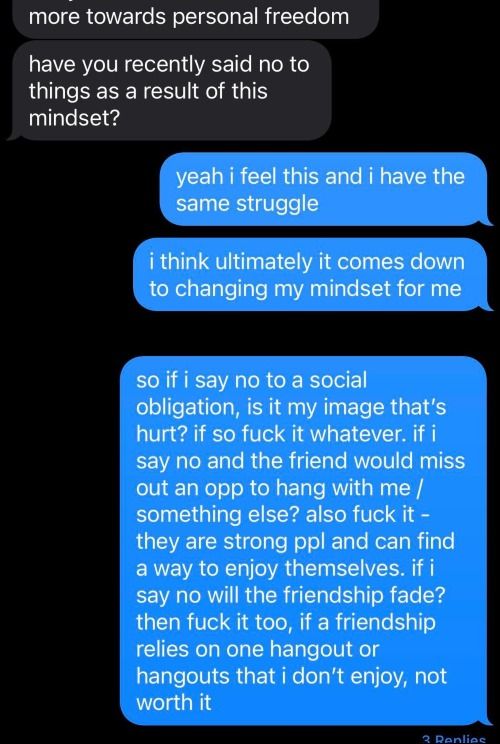7 simple ways to be as assertive as a New Yorker

I read about the difference between California and New York once.
It went like this. A man is at the head of a long line at the restaurant. He's holding up the line for some reason or another. One of the men in line goes up to the man in front, shouts and tells him off.
Who's the asshole?
- In California, the man who shouted is the asshole.
- In New York, the man holding up the line is the asshole.
It's not black or white. There's times to shout and impress your will on the world. And there are times to be relaxed, empathetic and let the world be. For a long time, I've been chill, and I've let the world be.
But I'm ready to make the other mistake.
I want a vibrant life. And to win that, I have to be assertive. I have to follow my nature and turn down culture to get to a life where I come alive in every moment.
So here's seven ways you and I can be more assertive, from the book Not Nice:
1. See people as strong.
Nice people see others as weak. Nice people hesitate to disagree, speak up, or take action, because they see others as fragile.
But people aren’t weak. They’re strong and resilient. People can suffer setbacks and get up again. People survive intense experiences like slavery and prison camps.
Aziz Gazipura, the author, puts it well. He tells us that other people are creators in their lives:
[The other people in your life are not]... victims that require you to care of them and do it all for them. The truth is underneath their stories and excuses, they are a powerful force that can make things happen. They are a creator in their lives, just like you and I are.
So, people can take it. The man holding up the line from the start of the article? He can take it.
In my life, I learned my parents could take me moving to another city. They were the people I saw in my life as most fragile, and I thought I was crushing them. But over time, I learned that they too are resilient and can find community and happiness, even without me.
Relatedly…
2. Recognize you aren’t responsible for others’ feelings.
Take a moment to sit with that. You aren’t responsible for:
- Your parents' feelings
- Your partners' feelings
- Your coworkers' feelings
- Your friends' feelings
- Strangers' feelings
You aren’t responsible for their feelings. They are.
Of course, you don’t want to be an asshole. But ultimately, they are the captains of their own lives. They’re responsible for their happiness and their emotional reactions. And we know they’re capable.
In the book, Aziz tells us to visualize a bubble to help with all this:
Boundary bubbles (click to expand)
Visualize a clear bubble around you, a semi permeable membrane. This bubble lets in positive emotions from others, like excitement and love. Other people’s negative emotions—their anger, anxiety, judgments and criticism—bounce off the bubble.
I’ve found this visual weirdly effective. As Aziz puts it, “images and symbols work in a way that words and languages do not.”
3. Channel your anger.

Nice people are afraid to be angry.
When they experience a feeling of anger, they quash it. This holds them back, because anger and aggression give us the power to be assertive.
Aziz gives an example of how we can channel our anger to speak up in meetings:
For example, if you don't speak up in meetings, are ignored by senior management, and colleagues talk over you when you try to share your ideas, then you need to speak up for yourself. You need power to do so. And that power is going to start deep in your core as anger and aggression.
It's going to be your Id saying: What the f**k? How dare you talk to me that way? How dare you talk over me? Shut the f**k up, Gary! I'll kill you!
Of course, you don't actually kill Gary. Instead, this energy passes through a network of tubes and hoses inside of your body and mind and comes out as assertiveness. "Hold on a second, Gary, I'm not done. Let me finish my point."
Recognize your anger. In Freudian terms, get in touch with your shadow. Go on an angry walk, or journal angrily.
Eventually, express it in a respectful way on New York public transit.
4. Have opinions & own your perspective.
People who are easygoing are putting up a front. Often, they aren’t as chill as they make it out to be. They do have opinions.
I know because I’m one of those people and I’ve been putting up a front.
Like the author, I prided myself on going with the flow:
In fact, I prided myself on how flexible I was. I thought of myself as someone who was easy going, who could "go with the flow." And then, after reading books like The Power of Now, by Eckhart Tolle, and other eastern philosophies, that idea of myself was reinforced. I'm not identified with my mind and my beliefs, man. I don't need to hold any strong opinions, or debate anyone. That's all just ego stuff anyway, and I'm above that now.
But the truth is, I do have opinions and preferences and wants. Everyone does. Everyone has internal reactions to external stimuli. Some of us just more quickly talk ourselves out of our internal truths than others.
To create the life where you come alive though, you have to honor those internal reactions and sometimes express them.
And don’t just have opinions about your preferences, have opinions about facts and the world.
Truth is, people just say stuff. A lot of what they say is based on bad data or shitty sources. Or it's just empty comments. They’re just improvising, and we should feel comfortable doing that too.
Also, even if you’re talking to experts on a subject, you’re an expert on your perspective. You can always express your perspective with confidence with the knowledge you have.
Have opinions. And own your perspective.
Next...
5. Let go of your image. Or at least don’t micromanage it.
The fact that we care about our image at all is absurd. I don’t think I can express it better than the Vipassana master S.N. Goenka. His lecture helps you let go of your image and it’s so freeing.
Aziz presents a thought exercise that helps too.
Imagine you live in a world your image is safe, no matter what you do. Everyone will always like and respect and approve of you. What would that free you up to do?

What would you do if you were guaranteed the approval of others?
Maybe you would...
6. Ask for what you want.
It’s natural to have desires, and it’s natural to express them.
Aziz's three-year-old has no qualms about asking for what he wants. Feed me, Daddy. Play with me. Take me outside.
And asking for what we want empowers others to ask for what they want.
Aziz asked his wife to take care of the kids in the mornings so he could work out. And that empowered her to ask him to take care of the kids alone in the evenings so she could go to her Barre classes.
Life isn’t a zero sum game. If everyone asked for what they wanted, more people would get what they want (surprise).
Relatedly, take your PTO, so your coworkers feel empowered to take theirs 😂
7. Finally, be kind.
Be assertive, but also be kind. Care about others and help them. But there’s no need to be nice about it.
Tying it all together
In summary:
- See people as strong.
- Recognize you aren't responsible for others' feelings.
- Channel your anger.
- Have opinions & own your perspective.
- Don't micromanage your image.
- Ask for what you want.
- And be kind.
Now you too can be as assertive as a New Yorker :)
Member discussion